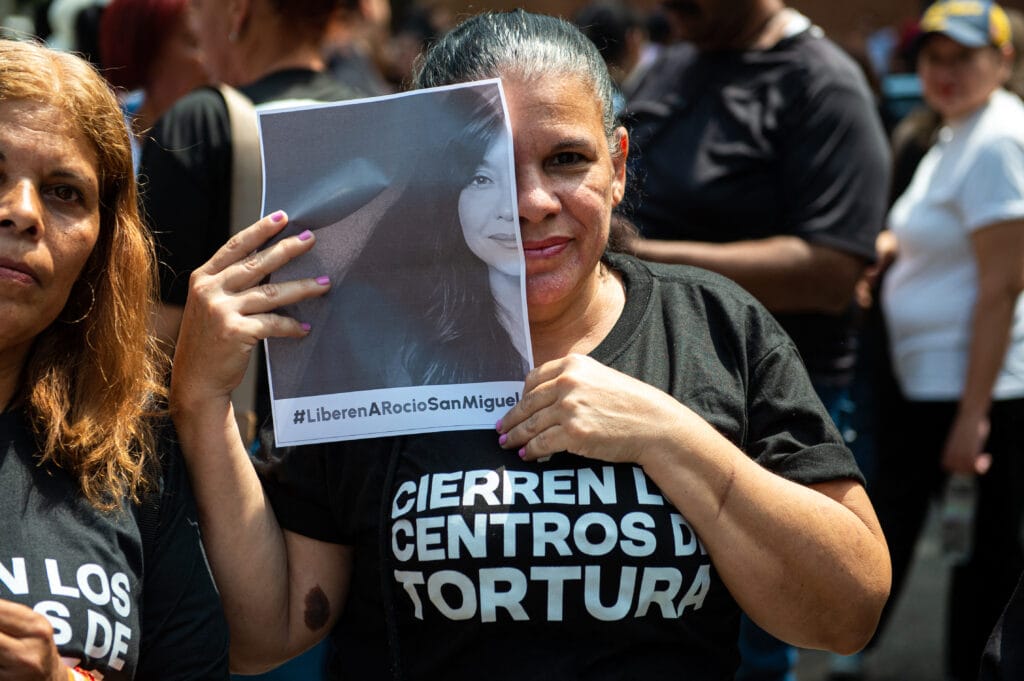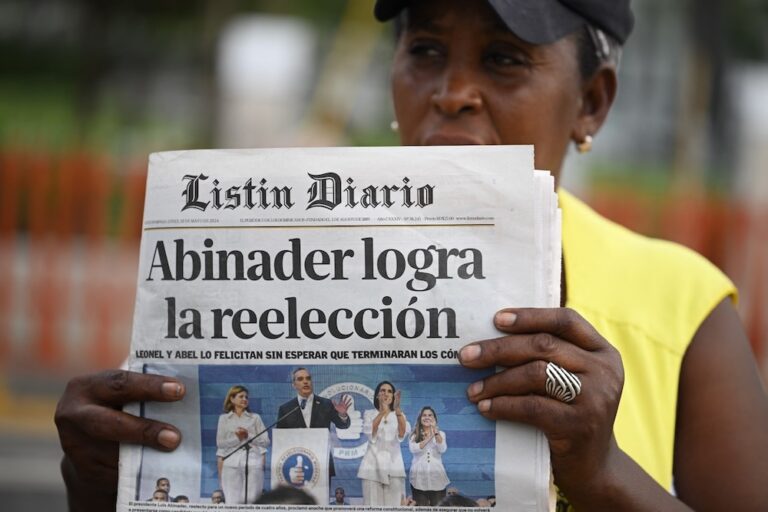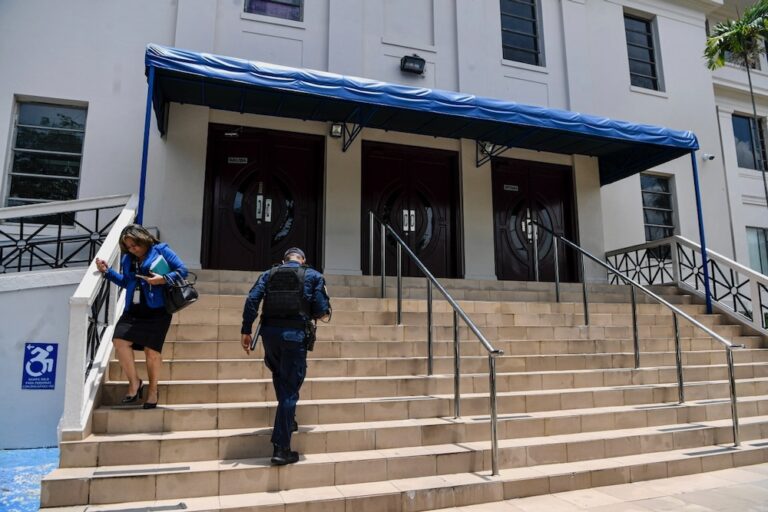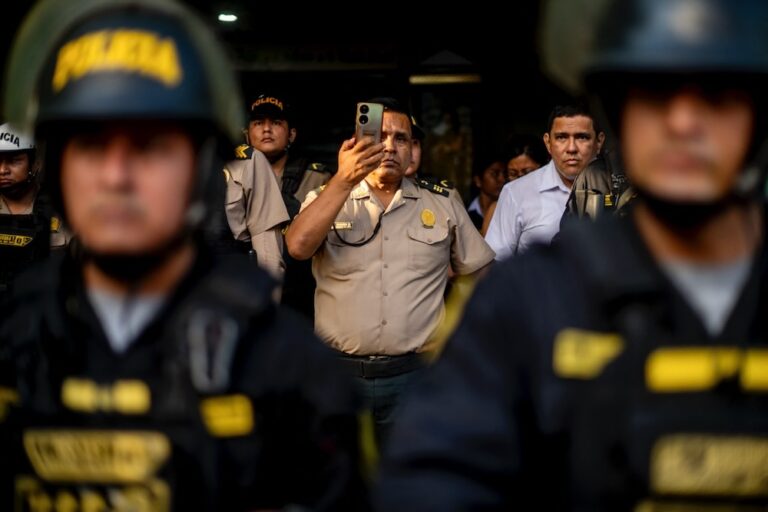A new year begins in the Americas: A free expression round-up produced by IFEX's Regional Editor Laura Vidal, based on IFEX member reports and news from the region.
In Mexico, an upcoming Supreme Court decision poses a critical juncture for digital rights and freedom of expression. Venezuela’s controversial NGO bill threatens to further constrict civic space, endangering the operations of organisations vital for maintaining checks on power. El Salvador’s recent elections and President Bukele’s increasingly authoritarian stance foreshadow more challenges to press freedom and democratic norms.
Mexico: New threats to digital rights and freedom of expression
In the coming weeks, Mexico’s Supreme Court of Justice faces a pivotal moment that could shape the future of digital rights in the country. With the court set to rule on several challenges to the amendments to the Federal Law on Copyright (LFDA), the stakes are high for online freedom of expression, as well as for public access to culture and science.
For nearly four years, legal challenges have piled up against the LFDA reforms, including from ARTICLE 19 Mexico and Central America and the National Human Rights Commission (CNDH). Concerns have been encapsulated in the #NiCensuraNiCandados (Neither censorship, nor locks) campaign, highlighting the grave threat the reforms pose to freedom of expression online, as well as the rights to science and culture.
For Priscilla Ruiz, ARTICLE 19 Mexico and Central America’s Legal Coordinator of Digital Rights, the worrying element is a mechanism within the law known as “notice and takedown”:
“This mechanism was intended to account for creators’ interests, and encourage them to share their content, by allowing them to send a simple notice to the internet service provider when their content has been posted without their permission, and have the post taken down right away. However, there is evidence that shows that this procedure has been used fraudulently, not to target actual copyright infringement, but to silence the press.”
International human rights bodies have also warned that automated content removal is incompatible with freedom of expression. Evidence collected by ARTICLE 19 shows how this system is often exploited to censor non-infringing information, including matters of public interest, creating a chilling effect that encourages widespread self-censorship among online service users.
Even without the kind of “automated censorhip” that the amendment could bring, the current context is one that discourages information-sharing. A notable case in February involved a number of Mexican journalists, including Julio Astillero and Alejandro Páez Varela who reported receiving content removal notifications on YouTube for using a video published by presidential candidate Jorge Álvarez Maynez from Movimiento Ciudadano in their news segments. The journalists deleted the content, fearing platform sanctions.
Venezuelan legislation: New threats to civil society organisations
Venezuelan civil society is facing a significant threat with the revival of a controversial NGO bill. The proposed legislation, promoted by Diosdado Cabello, a prominent figure in the government, seeks to dismantle and reconstitute the legal framework governing NGOs and civil associations. By mandating these organisations to re-register under a new, stringent system that scrutinises their members, donors, and financial activities, the government aims to tighten its grip on civil society.
The bill, which passed its first reading in January 2023, portrays social, humanitarian, and human rights organisations as enemies of the state, accusing them of funding terrorism with illicit funds, and stigmatising their work and role in society. It is now in a “consultation” phase, and has sparked widespread concern among human rights groups. In January 2024 IFEX-ALC joined networks like Alianza Regional and Voces del Sur in a joint statement warning that the law would severely restrict and threaten the operations of NGOs in Venezuela.
“We call on the international community to support actions that prevent this and other similar legislation from moving forward in the region. The goal of these types of legislation is to take away freedoms in our countries. Initiatives of this sort feed into stigmatising narratives and encourage more restrictive and anti-democratic actions. If this bill is approved, the work of non-governmental organisations in Venezuela will be even more limited and threatened, which could trigger an escalation in criminal persecution of activists and rights defenders.”
The proposed legal framework not only subjects CSOs to extensive government oversight and sanctions but also jeopardises their autonomy by placing their existence at the mercy of the government’s whims. Moreover, it is arguably yet another tactic to to attempt to stifle dissent and control the narrative ahead of the country’s presidential elections. The recent arrest of prominent human rights defender, military affairs specialist and vocal critic Rocío San Miguel, on charges of involvement in a coup plot against President Maduro, underscores the government’s readiness to suppress critical voices under the guise of national security.
The potential enactment of this law signifies a critical juncture for Venezuela, threatening to irrevocably close the civic and democratic space within the country. As Marta Valiñas, president of the UN Fact-Finding Mission, sees it, this could mark a point of no return.
Despite facing heavy fines for non-compliance, civil associations and NGOs remain a vital part of Venezuela’s social fabric, providing crucial oversight and advocacy on issues ranging from human rights abuses and corruption to environmental management and freedom of expression. The resilience of these organisations amidst escalating pressures highlights the ongoing struggle for a transparent, accountable governance structure, but it remains to be seen how much they can remain resistant in face of such profound political and social challenges.
Post-elections El Salvador: Looming threats to press freedom
In El Salvador, the 2024 elections have become a focal point for discussions on press freedom and democratic health. International organisations including Article 19 Mexico and Central America, Protection International Mesoamérica, Reporters Without Borders (RSF), the Foundation for Press Freedom (FLIP), as well as Fundamedios, the Committee to Protect Journalists, Free Press Unlimited and the Voces del Sur network, had rallied in support of Salvadoran journalists, emphasising the need for unfettered freedom of expression and fundamental rights amidst the electoral process. The electoral context has been challenging, as journalists faced access restrictions, threats and violence, with 64 incidents reported in the run-up to the elections (since July 2023).
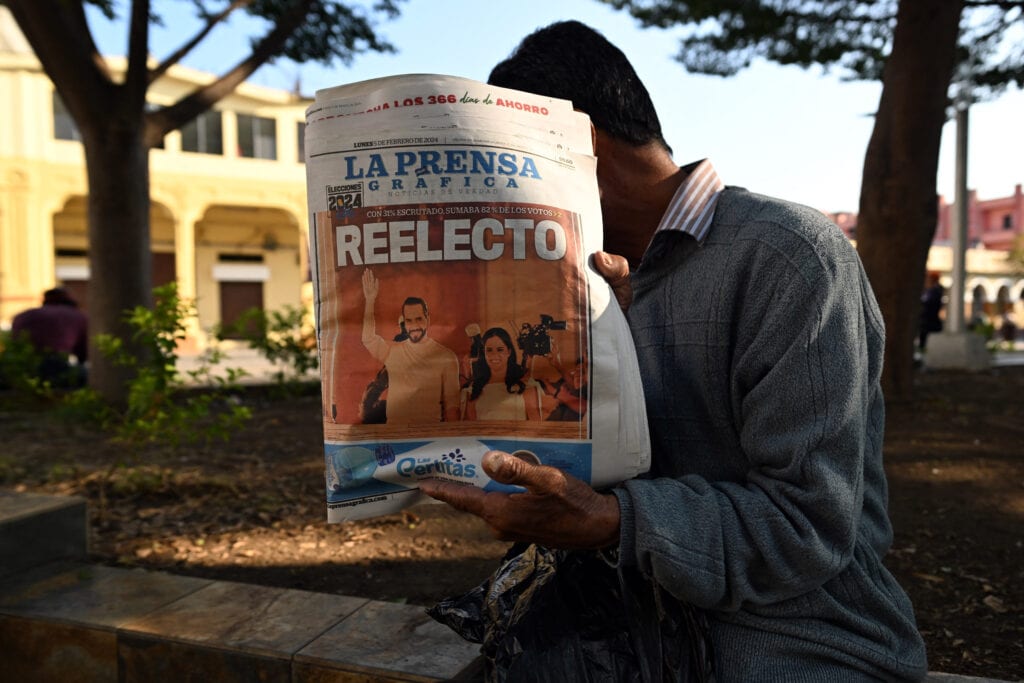
A man displays a newspaper with a picture on the front page of Nayib Bukele and the headline “Reelected”, in San Salvador, El Salvador, 5 February 2024. Marvin Recinos/AFP via Getty Images
The victory of President Nayib Bukele, which came as no surprise, despite concerns about the fairness of the process, has sparked calls from press freedom organisations to ensure a safe environment for journalists. Bukele’s tenure has been marked by a focus on security and the containment of violence, leading to an unprecedented number of gang members imprisoned under a state of emergency. While some Salvadorans view these measures as a necessary sacrifice for safety, the crackdown has sparked debates over human rights violations and the conditions of those incarcerated.
The “Bukele Model” of suspending fundamental rights as a solution to violence is gaining traction across Latin America. Bukele’s claim of 2023 being the safest year in Salvadoran history contrasts sharply with reports of arbitrary detentions and human rights abuses, highlighting a concerning trend towards authoritarianism.
The deterioration of democratic norms and the clampdown on freedom of expression, evidenced by Bukele’s disparaging remarks about journalists being “funded by Soros”, indicate a broader assault on civil society and the press. This scenario poses a significant challenge to the region, as other countries have, or are considering adopting similar emergency measures, risking the entrenchment of a ‘new normal’ where armed solutions and weakened democratic institutions are increasingly accepted by a populace desperate for security.
Journalist Fabiola Chambi draws parallels between El Salvador, Ecuador, and Honduras, cautioning against the long-term implications of these emergency measures on democracy and rule of law. The enduring popularity of leaders like Bukele, despite human rights concerns, signals a grim future for press freedom and democratic values in the region, underscoring the need for vigilance and advocacy to safeguard these fundamental rights.
In brief
- Press violence intensifies in Haiti: The Inter-American Commission on Human Rights (IACHR) voices its concern over escalating violence by organised crime groups in Haiti. It urges the state and international community to find comprehensive and lasting solutions to the country’s enduring humanitarian, political, social, and security crisis.
- Argentina‘s President Javier Milei’s “omnibus” bill, proposing changes to over 300 laws, failed in Congress, marking a major defeat for the new administration amidst rising tension with provincial governments. It is important to note that during the legislative debate’s media coverage and the protests that ensued in January, at least 27 journalists were injured as a result of police actions.
- Journalist José Rubén Zamora’s case hearing in Guatemala was postponed once again. The hearing, scheduled for 5 February, was postponed due to a scheduling conflict with the Judicial Career Council. The date was set for 21 February, only to be postponed again, this time without a new date specified. This incident adds to a series of delays in a case marked by judicial irregularities. In May 2023, the International Mission to Observe Press Freedom Conditions in Guatemala visited Zamora, confirming the poor conditions in which he was being held, a situation that has also been emphasised by his family and by the Office of the United Nations High Commissioner in Guatemala.
